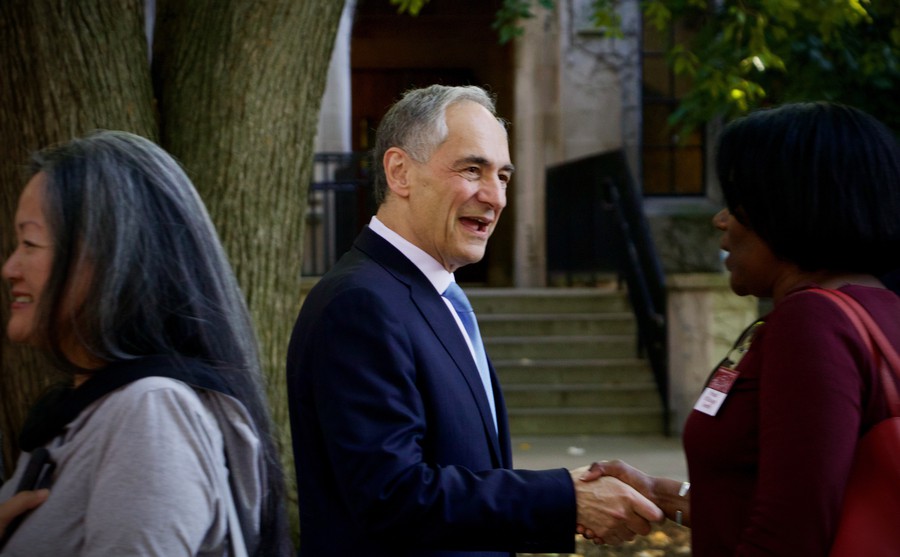In a statement released via UChicago News on Monday, UChicago’s chancellor and former president Robert Zimmer announced his resignation from the University of Austin (UATX) Advisory Board. Zimmer resigned on November 11, following the release of a number of comments by the University of Austin that were critical of higher education with which he disagreed.
“While the new organization’s commitment to a liberal arts education and free expression reflects topics that are very important to me,” Zimmer said, ”the new university made a number of statements about higher education in general, largely quite critical, that diverged very significantly from my own views.”
“My focus and commitment have been, and will continue to be, to the University of Chicago,” he said. “I will continue to work on and speak about the issue of free expression on campuses, and I wish the University of Austin success in advancing this essential priority.”
Zimmer was asked to serve on the advisory board by Pano Kanelos, the founding president of UATX and former president of St. John’s College in Annapolis, Maryland. Zimmer had planned to continue serving as UChicago’s chancellor while advising the University of Austin, explaining, “This board had no fiduciary, oversight or management responsibilities.”
UATX was announced on November 8 as a new university “committed to freedom of inquiry, freedom of conscience, and civil discourse,” founded by individuals who are “alarmed by the illiberalism and censoriousness prevalent in America's most prestigious universities,” according to its website.
The university’s advisory board also includes UChicago geophysical sciences professor Dorian Abbot and UChicago law professor Geoffrey Stone, as well as faculty and administrators from other universities around the country.
On its website, UATX displays a plan to establish an undergraduate college in 2024. In 2022 and 2023, it plans to launch graduate programs in “Entrepreneurship and Leadership,” and “Applied History” and “Education and Leadership,” respectively.
It will also begin hosting a “Forbidden Courses” program next summer, in which students will engage in “spirited discussion about the most provocative questions that often lead to censorship or self-censorship in many universities.”









